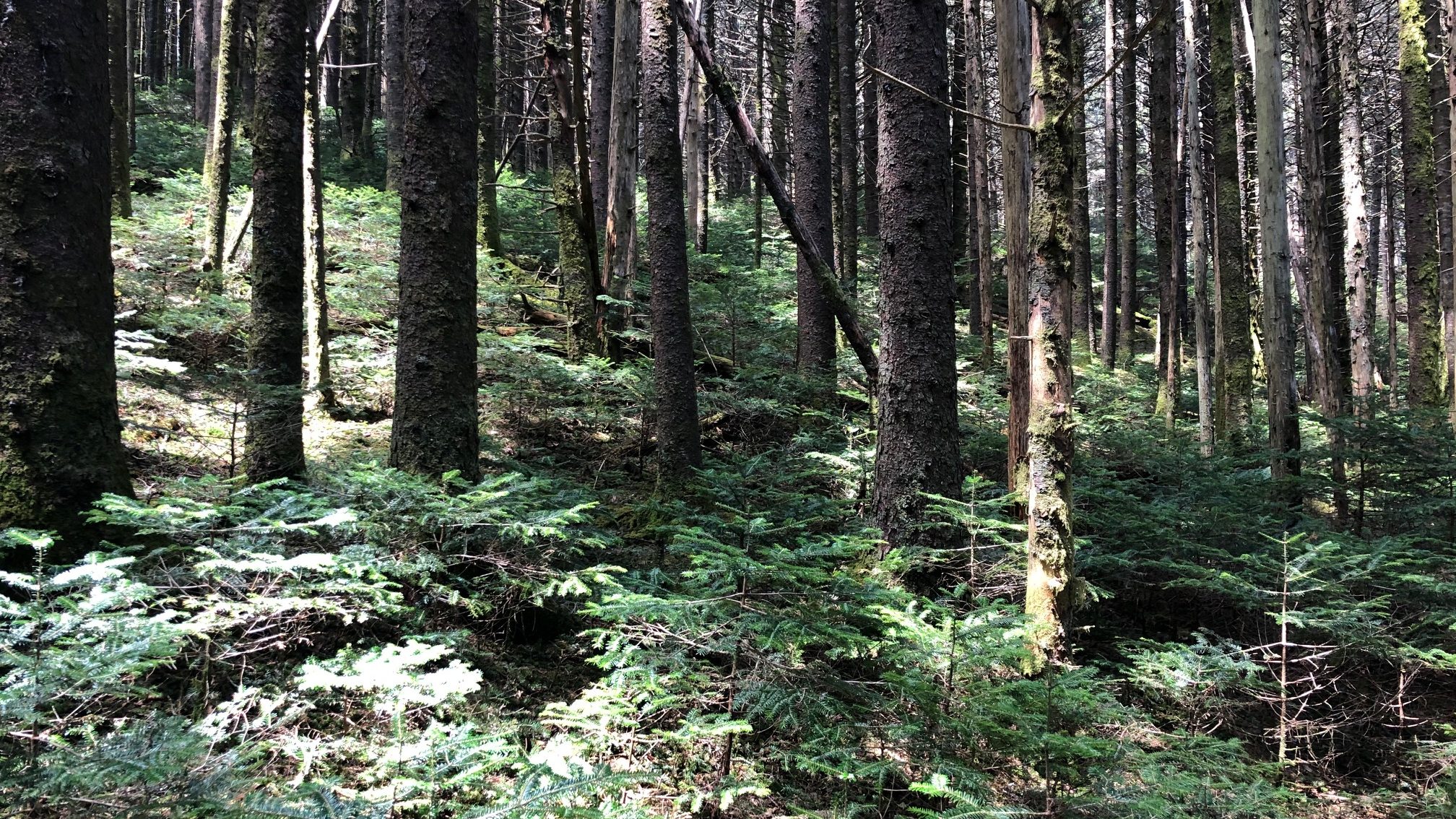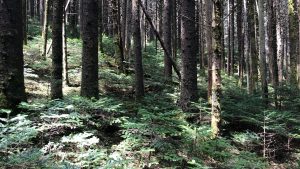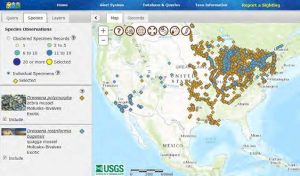May 2021 Newsletter

May 2021 Newsletter
Welcome to the Southeast Climate Adaptation Science Center’s May 2021 Newsletter.
For news and upcoming events related to the Southeast Climate Adaptation Science Center,
subscribe to our monthly newsletter.
SE CASC News | Resources | Publications | Tribal News | Partner News | Webinars | Events | Opportunities

Southeast Climate Adaptation Science Center News

Join our summer SE CASC Science Seminar Series, kicking off on June 10, 11 am ET, with Nils Peterson, NC State University, presenting Lessons for Landscape-scale Conservation Learned from the Southeast Conservation Adaptation Strategy. Learn more and register.
Meet our 2021-22 cohort of Global Change Fellows! This interdisciplinary group of NC State graduate students is the 10th annual cohort of Global Change Fellows. Learn more.
Researcher Spotlights: 2020-21 Global Change Fellow Greta Easthom and 2019-20 Global Change Fellow, Kate Jones.
SE CASC PI, Nils Peterson and Global Change Fellow, Kathryn Jewell co-authored, SECAS FUTURES: Structuring Governance to Achieve Landscape-scale Conservation Outcomes, exploring the advancement of the mission and successes over the past decade. Learn more.
National CASC Project Spotlight: Project Spotlight: Southeast CASC Project Contributes to Successful Barrier Island Restoration.
SE CASC researchers, Ana Rivera-Burgos, Jaime Collazo, Adam Terando, and Krishna Pacifici, published Linking demographic rates to local environmental conditions: Empirical data to support climate adaptation strategies for Eleutherodactylus frogs, investigating spatial and temporal parameters of habitat that support coqui populations, pointing to potential climate refugia. Learn more.
SE CASC researchers, Jennifer Cartwright and Dwayne Estes and USGS Deputy Director, Ryan Boyles co-authored Science needs of southeastern grassland species of conservation concern—A framework for species status assessments: U.S. Geological Survey Open-File Report 2021–1047, summarizing a multi-stakeholder workshop resulting in a scientific needs assessment for grassland species and communities of conservation concern. Learn more.
2019-20 Global Change Fellow, Sam Flake was lead author and SE CASC Faculty Affiliate, William Hoffman co-authored, Savannas are not old fields: functional trajectories of forest expansion in a fire‐suppressed Brazilian savanna are driven by habitat generalists.
Recent video describes SE CASC-supported research on urban heat island effects on scale insects by SE CASC PI, Steve Frank and 2016-17 Global Change Fellow, Larry Long, A Buggy Problem In Our Urban Cities.
2015-16 Global Change Fellow Kristi Backe was lead author and SE CASC PI, Steve Frank was co-author on a new publication, Human health risks of invasive caterpillars increase with urban warming. Learn more.
Consortium PI, Paul Armsworth co-authored Protected area, easement, and rental contract data reveal five communities of land protection in the United States.
SE CASC Faculty Affiliate, Marcelo Ardon and Researcher, Melinda Martinez, co-authored, Drivers of greenhouse gas emissions from standing dead trees in ghost forests, and Long-Term Sediment, Carbon, and Nitrogen Accumulation Rates in Coastal Wetlands Impacted by Sea Level Rise.
SE CASC Faculty Affiliate, Jelena Vukomanovic authored Research trends in U.S. national parks, the world’s “living laboratories.” Read more.
Consortium PI, Lydia Olander was on the Advisory Team for Resilience Roadmap project, providing recommendations to support resilience efforts of the Administration.
2012-13 Global Change Fellow, Adrienne Wootten discussed uncertainty and climate change on the Science Decoded podcast. Listen here.
SE CASC Researcher, Stephanie Romanach co-authored EverForecast—A Near-Term Forecasting Application for Ecological Decision Support.
Conservation Corridor: Connectivity metrics for conservation planning and monitoring.
Resources
FEATURED RESOURCE
 This database maintained by USGS provides current analytics and records of aquatic plants and animals occurring outside of their native range. Developed for use by biologists, interagency groups, and communities, it allows users to shape queries for specimen records by different taxonomic levels and geographies, and to report sightings of invasive species. It allows display of animated species distribution maps and incorporates an alert system for new introductions. Learn more.
This database maintained by USGS provides current analytics and records of aquatic plants and animals occurring outside of their native range. Developed for use by biologists, interagency groups, and communities, it allows users to shape queries for specimen records by different taxonomic levels and geographies, and to report sightings of invasive species. It allows display of animated species distribution maps and incorporates an alert system for new introductions. Learn more.
Eye on the Storm Archives. A collection by Yale Climate Connections of environmental articles focused on extreme events and climate anomalies. Learn more.
Climate Resilience in Albemarle-Pamlico Region Tribal Communities. Albemarle-Pamlico Region Tribal Communities Project video session details the importance of Indigenous Knowledge and climate resiliency through the community by raising awareness of Indigenous-led environmental research and how climate change impacts the culture of Indigenous people. Learn more.
Billion-Dollar Weather and Climate Disasters. The National Center for Environmental Information conducts an assessment of current and previous climate disasters’ toll on the U.S. economy, the basis of this interactive time series of disasters valued at a billion dollars. Learn more.
Resist-Accept-Direct Framework. This US Fish and Wildlife Service website compiles case studies and resources for using R-A-D strategies to manage natural resources in a changing climate. Learn more.
Story Map: Climate Extremes. An interactive story map outlining the extreme weather the Carolinas face and impacts on communities. Learn more.
In the Media
NOAA releases new climate normals for the US. Washington Post
New Initiative Aims To Conserve 1 Million Acres Of Salt Marsh Along Southeast Coast. WJCT News
Devastating disease in dolphins linked to extreme downpours, researcher says. Yale Climate Connections
Seeds of Resilience May Be In Forests, Farms. Coastal Review Online
Climate Grant Universities Could Mobilize Community Climate Action. Eos
Notable Publications
Classification of Non-Indigenous Species Based on Their Impacts: Considerations for Application in Marine Management. Non-indigenous species (NIS) can have important impacts on ecosystems as well as the social and economic systems dependent on their services. The authors build on a recent classification scheme of invasive species by Blackburn et al. that is based on a wide variability of impacts across locations, species, and ecosystems and intended to provide a unified framework to prioritize management actions, among other aims. They present a complementary framework focused on management outcomes in marine systems that estimates impacts across values that include economic, social and cultural, and human health, as well as environmental. Because of the lack of data for many marine NIS and tendency to not detect impacts, they also recommend a precautionary approach to NIS including controls at borders. Link to article.
Climate change impacts on cultural heritage: A literature review. The climate crisis is impacting communities across the globe, putting at risk the cultural heritage associated with many of those same communities. Authors reviewed studies on impacted cultural assets, defined as historical buildings, archeological sites, and monuments, their contents and collections, as well as their intangible aspects that lend a sense of place, identity, and aesthetic wellbeing to local populations. They developed hazard-impact diagrams that portray impacts of gradual and sudden changes in climatic stressors on decay of materials and structures. Most studies were limited to a single climate change scenario and one climate model and focused on European cultural heritage. Link to article.
Rapid deforestation of a coastal landscape driven by sea‐level rise and extreme events. Researchers quantified rates of vegetation change in forested wetlands in Alligator River National Wildlife Refuge driven by sea-level rise and saltwater intrusion accelerated by land drainage and subsidence. They used remote sensing data to analyze changes in landcover classification from 1985 to 2019, for marsh, shrubland, pine, deciduous, and ghost forest vegetation classes. They showed that about a third of the refuge area changed classification over the study period, with about 1% of land lost to inundation. More than 25% of coastal forest habitat in the refuge was converted to another landcover type, mostly shrubland or marsh habitat, and more than 10% transitioned to a unique type – “ghost forest” – characterized by standing dead trees and fallen tree trunks. Distance to the sound (the eastern shore of the refuge) was the strongest predictor of both forest loss and ghost forest formation, but changes were seen farther inland. They advocate for a global analysis of coastal forested wetland loss. Link to article.
Vulnerability of global biodiversity hotspots to climate change. Journal main conclusions: We contend that many, although not all, biodiversity hotspots have climate and landscape characteristics that create fine-scale spatial variability in climate, which potentially buffers them from climatic changes. Temporally, many hotspots have also experienced stable climates through evolutionary time, making them particularly vulnerable to future changes. Others have experienced more variable climates, which is likely to provide resilience to future changes. Thus, in order to identify risk for global biodiversity, we need to consider carefully the influence of spatio-temporal variability in climate. However, most vulnerability assessments in biodiversity hotspots are still reliant on climate data with coarse spatial and temporal resolution. Higher-resolution forecasts that account for spatio-temporal variability in climate and account better for the physiological responses of organisms to this variability are much needed to inform future conservation strategies. Link to article.

Tribal News
Visit USET Climate Change Headlines for updates on information regarding climate science events, funding opportunities, best practices, and highlights from across the USET region.
Save the Date: USET Tribal Climate Resilience Camp. This virtual event will be held from July 12-16. Learn more.
2021 Shifting Seasons Summit. The College of Menominee Nation – Sustainable Development Institute and the Northeast Indigenous Climate Resilience Network announced that the 3rd Shifting Seasons Summit that occurred April 19-21 is now open to the public to view. If you did not register you will need to create an account and then you will have access to all the sessions. If there are any questions please contact shiftingseasons@menominee.edu. Learn more.
National Tribal Leadership Climate Change Summit convenes Tribal Leaders, youth, and staff from Tribal Nations, First Nations, and Indigenous communities worldwide in a series of virtual sessions focused on critical climate change topics. Session IV: Traditional Knowledges & Tribal Sovereignty will be June 8. Details and registration.
Secretary Haaland Announces Funding for Six Tribal Youth Environmental and Economic Empowerment Projects. To encourage and create stewardship opportunities for Tribal youth, Secretary of the Interior Deb Haaland announced the approval of $927,000 for the Tribal Youth Coastal Restoration Program. The Coastal Restoration Program will aid in revitalizing up to 1,000 acres on Tribal lands along the Gulf Coast. Including the southeastern tribes of the Chitimacha & Coushatta lands. Activity Description. Learn more.
Indigenous Peoples Burning Network. This article acknowledges landscape revitalization through the practices of cultural and controlled burning among Indigenous communities. Learn more.
Seed Funding for Centering Justice in Climate Research & Action. The Rising Voices Center for Indigenous and Earth Sciences is now accepting proposals to develop small impactful projects or aid in development of a long-term extensive project proposal. Rising Voices will be offering three $5,000 awards. Deadline Friday, June 25th, 2021. Learn more.

Regional Partner News
Association of Fish and Wildlife Agencies: Connectivity & Climate Change Toolkit.
South Atlantic LCC: Help improve the Blueprint: Sign up for a virtual workshop to review draft South Atlantic Blueprint 2021!
National Park Service: Planning for a Changing Climate: Climate-Smart Planning and Management in the National Park Service.
USFWS Migratory Birds Program: announces nearly $80 million in funding for wetland conservation projects and national wildlife refuges.
Southeast Conservation Adaptation Strategy: New beta viewer for the Southeast Blueprint now available.
National Integrated Drought Information System: Drought Update for Puerto Rico and the U.S. Virgin Islands and Southeast Climate Update and Webinar Recap.

Webinars
Find more upcoming events in our calendar.
May 25 | 3pm – 4pm | Can Oyster Aquaculture Help Restore Coastal Water Quality?
May 26 | 1pm – 2pm | Native Nations & Climate Change Webinar Words Matter: Considering Language Barriers
May 26 | 2pm – 3pm | Cougars, Corridors, and Conservation: Three decades of expanding vision and partnerships
May 27 | 9:30am – 10:30am | NOAA Eastern Region Climate Services: New NOAA Climate Normals
May 27 | 2pm – 3pm | Collaborative Fire Management Case Studies from the Colville National Forest
June 1 | 3pm – 4pm | Inhabitants: An Indigenous Perspective Film Screening & Panel Discussion
June 2 | 12pm – 1pm | Aquaculture Phytoplankton Monitoring Network: Empowering shellfish farmers to monitor the growing threat of Harmful Algal Blooms
June 2 | 12:30pm – 2pm | Indigenous Knowledge & Western Science: Collaboration, Relationship, and Climate Solutions
June 3 | 9am – 10am | Climate and Conservation Coffee
June 4 | 1pm – 2pm | USDA Climate Hubs: Work with Tribes and Tribal Communities to Enhance Climate Resilience
June 8 | 10am – 10:45am | Southeast Climate Monthly Webinar + 2021 Hurricane Outlook
June 8 | 1pm – 4pm | National Tribal Leadership Climate Change Summit Virtual Sessions: Session #4 – Traditional Knowledges and Tribal Sovereignty
June 10 | 11am – 12pm | Lessons for Landscape-scale Conservation Learned from the Southeast Conservation Adaptation Strategy
June 16 | 12:30pm – 2pm | Indigenous Knowledge & Western Science: Collaboration, Relationship, and Climate Solutions
June 17 | 10am – 11am | South Atlantic Third Thursday Web Forum
Upcoming Events
Sept. 8 | Understanding Algal Blooms: State of the Science Conference | Virtual
Dec. 9-10 | Annual Climate Leadership Summit | Palm Beach, FL
Dec. 13-16 | A Community on Ecosystem Services | Bonita Springs, FL

Opportunities
Hiring Announcements
US Fish and Wildlife Service is hiring a Social Scientist. Federal employees can apply here and public applications may be submitted here.
National Park Service is seeking applications for a Science Communication Assistant Internship. Apply here.
Research Grants
Restore America’s Estuaries is accepting applications for the National Estuary Program – Coastal Watershed Grants 2021 funding cycle. Letters of Intent are due June 7. More information.
- Categories:

